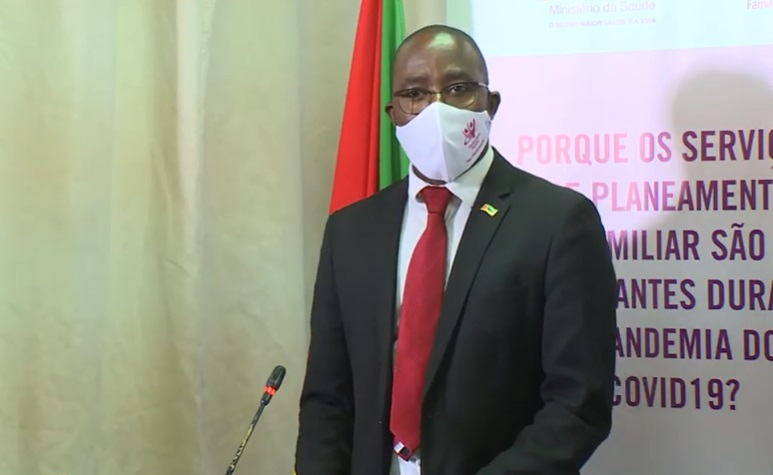Combined team from Mozambique, Kenya wins 34t Christof Heyns African Human Rights Moot Court ...
Mozambique: High teenage pregnancy rates worry health authorities – Watch

Photo: MIramar
In Mozambique, one out of every two girls aged between 15 and 19 is either pregnant or is a mother for the first time. The Covid-19 pandemic has meanwhile significantly reduced demand for contraception, leaving health authorities to warn that the teenage pregnancy has reached high levels.
The high prevalence of teenage pregnancies mostly occurs among girls with low income and less education living in rural areas.
Mozambique’s Minister of Health Armindo Tiago points out that, when a girl becomes pregnant, her present and her future change radically. The likelihood of dropping out of school increases, job opportunities decrease, her health is at risk and her vulnerability to poverty, social exclusion and dependence increases.
According to the Survey of Indicators on Immunisation, Malaria and HIV/AIDS in Mozambique [IMASIDA]: carried out in 2015 and cited by the Minister of Health, the number of children per woman remains high.
“On average, a woman has at least five children. One in two girls aged 15 to 19 is either pregnant or a mother for the first time. One out of every two deaths among females aged 15 to 24 is related to pregnancy, childbirth or abortion,” Minister Tiago noted.
Scientific evidence shows that providing access to contraception for girls and women who want to postpone pregnancy or stop having children has the potential to reduce unplanned pregnancies by 73%, maternal deaths by 35% and abortion by 70%.
The minister was speaking in Maputo this Wednesday at a ceremony meant to “share the history” of the country “with regard to the use of sexual and reproductive health services”.
Young Marta Mahumana spoke at this meeting. “We are young and we are interested that these services are available to all of us, regardless of race and social status. If I am of working age, I need these services and it is my right. I started attending the services when I was 18 years old. I am now 20 and the advantage was me having a healthy education, free from unwanted pregnancies and free from sexually transmitted diseases,” she said.
In the face of a significant reduction in the demand for contraceptive methods due to the coronavirus pandemic, the Ministry of Health and partners intend to improve the coverage of specific interventions among teenage girls and young women
“This September 26, we celebrate World Contraception Day,” Monique Mosolf, Health Office Director of the United States Agency for International Development (USAID) in Mozambique, said. With the world in “a unique situation, due to the Covid-19 pandemic,” Mozambique is marking the event by investing in awareness, “so that more girls, boys and young people take the issue of family planning more seriously”.
Armindo Tiago called for family planning not to be abandoned, regardless of the pandemic, and for more parental intervention in matters related to the sexual health of adolescents.
The Mozambican Ministry of Health promotes ‘National Contraception Week’ to strengthen awareness on this matter.













Leave a Reply
Be the First to Comment!
You must be logged in to post a comment.
You must be logged in to post a comment.